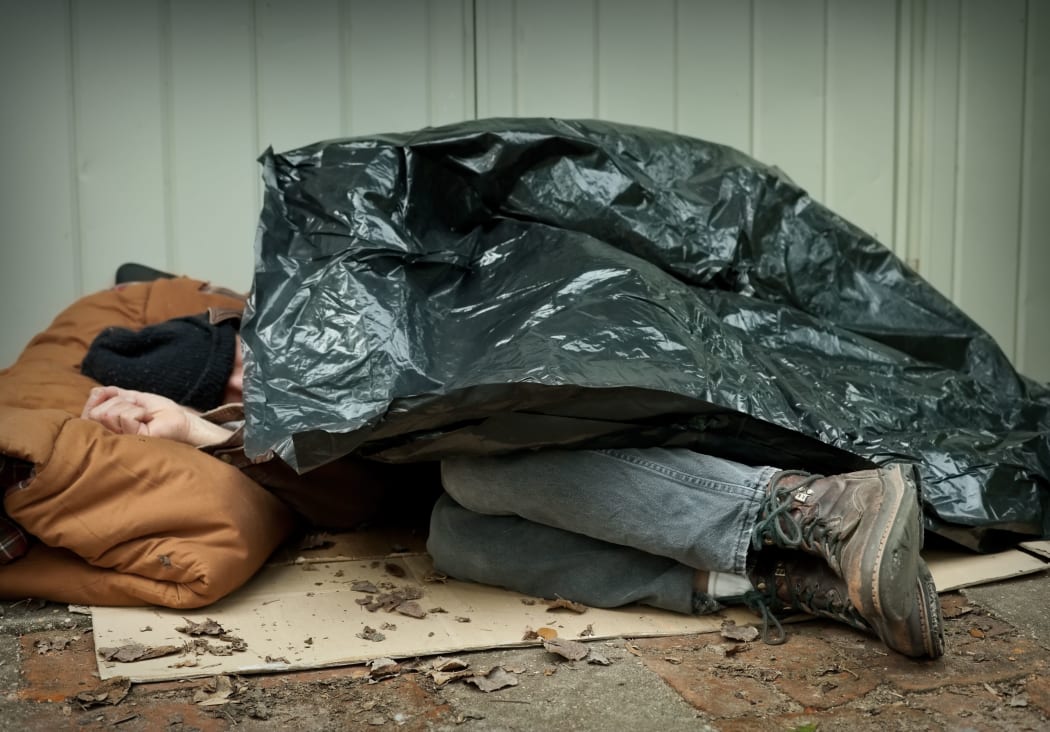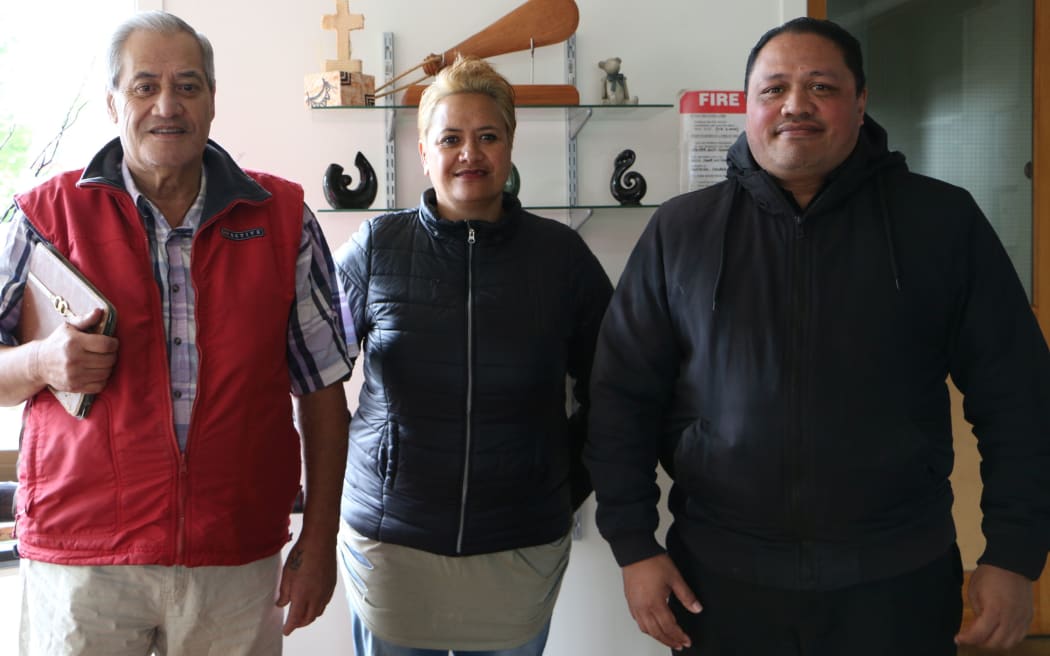An Auckland church providing housing for the homeless for more than a decade has had an influx of people dealing with poor mental health.

Photo: forestpath/123RF
Faith Family Baptist Church in Panmure offers a 13-week programme to rehouse people in need.
Numeracy and literacy classes, and assistance with addiction and health were also included.
Church kaumātua Tom Ngapera said they had been putting a roof over people's heads for a while.
"We've been focusing on housing since 2005 but only on a small scale.
"But now, it's going to be here for a while 'til anybody gets their act together and start putting houses out there so that these people can get there."
About 15 people stay at the church and its buildings at any given time and tenants pay $200 a week for board, power and water.

Faith Family Baptist Church housing team (from left) Tom Ngapera, Carla Perese, Jason Tai. Photo: RNZ / Jessie Chiang
Food was officially included and there was communal cooking and food donations.
Senior pastor Carla Perese said most people who came through ended up staying longer than 13 weeks but the church's aim is to provide transitional housing.
She said one lady had been there for two years and as part of getting people back on their feet it was important to find accommodation.
"We need the best care for her that we can get so that she can be able to have that self-worth of having her own home, living in her own house and having her own carers going through there.
"She can't have that here because of all the people who live here - there's that quality of life."
But Ms Perese said what the church did was more than just finding people a place to stay.
Housing coordinator Jason Tai said in recent months a lot of people had arrived with mental health problems.
That made it difficult to find out basic information.
"A lot of them don't even have identification, they don't have a bank account, they don't have driver licenses, 18-plus cards, anything like that."
Mr Tai said knowing how to communicate and support people struggling with their mental health could be tough.
"Not [being] professional social workers or anything like that, we engage with the people, we track them and we try and make the best decisions from there so sometimes it [can be] challenging."
It was about balancing their care with others also staying at the church.
But in all the years the church had tenants there was been only one incident where there were safety concerns.
Ms Perese was investigating which services they could get for tenants with mental health problems.
"If things go out of hand, if people start rising up, we just call the police because we can't deal with that.
"But a few days ago I did have a meeting with organisations just to talk about that and what support we can get in here."



